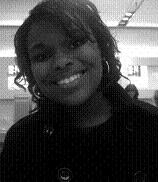
A local effort for improvement in the area.
There are many people concerned about global warming here in Richmond and are doing things about it, but a lot of people still aren’t concerned.
By Santia Nance
There are many things going on in Richmond to prevent global warming and it’s effects.
“We’re going to see a lot more warmer temperatures and it’s going to have a lot of stress on the environment, including trees, water… our resources… and its important that we take action now,” said Scott Burger, the vice chair of the Richmond Sierra Club, which is a national organization that strives to save the planet.
Global warming is a term used for climate change of the earth due to human activities that change the atmosphere's composition and natural factors.
There are a lot of organizations and individuals who are doing many things to help prevent global warming.
One of them is called the Falls of the James Group. They celebrate nature and the outdoor recreational opportunities of our diverse region and their goals are urban sustainability, protecting greenways, blueways & parks, and global warming-green solutions.
“We keep trying to push bike and pedestrian activities by supporting the new downtown plan which is supposed to be more bike, pedestrian and transit friendly,” said John Zeugner, the Chair of Falls of the James.
Another one of the bigger missions going on in Richmond right now is the Cool Cities program started by the Sierra Club in 2005. It’s mission is to empower city residents and local leaders to join and encourage their cities to implement smart energy solutions to save money and build a cleaner, safer future.
“It’s definitely happening, I’m watching it,” Lisa Taranto, the director of Tricycle Gardens said, who is very concerned about global warming.
“Ice caps are melting, water is limited, it’s just really rapid change and we need to do something about it now,” Taranto said.
With Virginia not being a very ‘green’ state, and Richmond going backwards, Zeugner said it’s hard to get everyone worried about the climate change.
“There’s not enough action, not enough recycling, and not enough people doing energy conservation in their own homes,” Zeugner said.
“It is a good time because we do have the resources right now, and we might not have them in 10 to 20 years,” said Burger.
“It takes a lot of time to turn a battleship around, and we already have so many things just going in the wrong direction… hopefully we will see a better change with new leadership,” he said.
President Barack Obama just signed the new economic stimulus package, which includes $71 billion for energy and environmental initiatives and another $20 billion for green tax incentives.
“It will definitely take more federal and state guidance to really push incentives with more energy efficient vehicles, and controlling emissions,” Zeugner said.
Although it is a huge issue, many small things can be done by everyone in the city including car pooling, growing your own food, and using less energy.
Burger said that people could also have a ‘Meatless Monday,’ which is a day where some people go without meat for at least one day a week.
“Eating meat actually requires a lot of energy and resources and it puts off a lot of CO² itself because of the factories,” he said.




